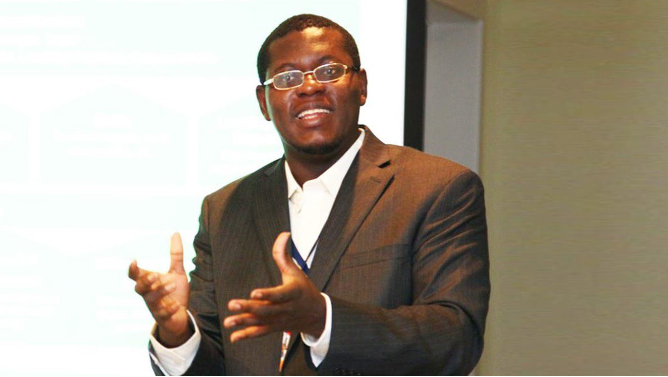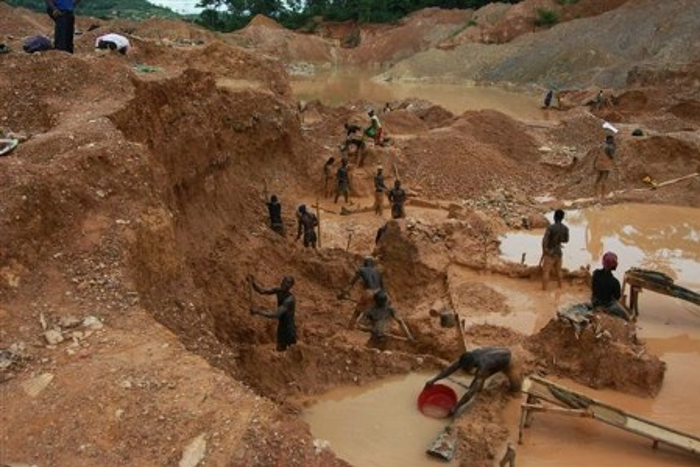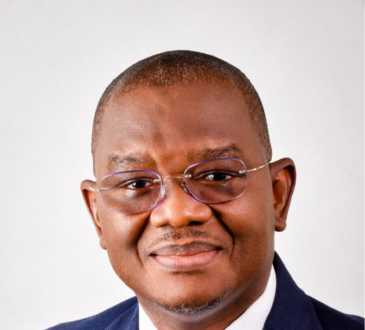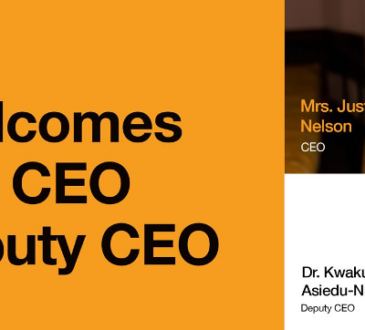Local solutions over state intervention: experts urge shift in Ghana’s fight against illegal mining

The Executive Director of the Africa Centre for Energy Policy (ACEP), Ben Boakye, has called on the government to empower local communities to take charge in addressing illegal mining (galamsey) instead of relying on direct state intervention.
The government recently established a five-member ad hoc ministerial committee to engage stakeholders and assess efforts to tackle the illegal mining crisis. Galamsey has garnered significant attention, with various unions and associations calling on President Akufo-Addo to declare a state of emergency to create ample time and focus on addressing the menace.
However, Boakye advocates for prioritizing local solutions over external interventions. Speaking during a NorvanReports X-Spaces discussion titled “Golden Promises, Muddy Realities: The True Cost of Galamsey to Ghana,” he critiqued the government’s past actions. “When there was talk of procuring drones to combat illegal mining, it became clear to some of us that this was merely a procurement opportunity, focusing on profit rather than solving the issue,” Boakye stated.
He underscored that local solutions were overlooked in favor of financial gain, noting, “Instead of holding officials accountable for their responsibility to protect the environment, the focus was on spending money, which has done little to address the problem.”
Boakye proposed that the communities affected by illegal mining should be empowered to take control of the fight. “Let the local communities lead the efforts, and the state should only step in with reinforcement when necessary,” he suggested.
He further elaborated, “District commanders should be held accountable for what happens within their jurisdictions. If they need reinforcement from the military or police, these forces should operate under the command of local authorities, ensuring that they align with on-the-ground strategies.” Boakye warned that external command from Accra often undermines local efforts and disrupts the efficacy of solutions on the ground.
He concluded by stressing the importance of sustainability in the fight against galamsey, stating that accountability must start with those on the ground. “Rather than relying on Accra, local authorities must take ownership of the problem. The current approach of deploying troops has only led to their entanglement in the very activities they were sent to combat,” he added.
Boakye also emphasized that local security personnel, already stationed in these communities, have a deeper understanding of the intricacies of illegal mining and are better positioned to engage with those involved. According to him, the government’s role should be to provide reinforcements when necessary, rather than taking over from the outset.
Delving into the causes of galamsey, Boakye attributed much of the problem to political interference, remarking, “Politicians took advantage of the situation, awarding mining concessions to friends and family members.” He further criticized the lack of leadership in addressing the issue, stating, “We have failed to effectively tackle illegal mining because there has been no strong leadership to confront the problem head-on.”
Boakye also argued that politicians are profiting from gold production, pointing out that, “The central bank buys all the gold, and without concern for its source, they are complicit. They initiate policies to buy gold but show no regard for where it comes from.”

Bright Simons, Vice President of IMANI Africa, highlighted another dimension of the problem—unemployment in mining communities. He noted, “Unemployment is a major issue in these areas. Many locals don’t perceive galamsey as illegal; they see it as a legitimate way to make a living because there are no better-paying jobs.” Simons added that simply enforcing the law without addressing economic realities will not work, as “you cannot fight it purely with legal force.”
Simons also addressed the sheer scale of the problem: “With approximately 40,000 soldiers versus over a million galamseyers, using pure force is impractical.” He advocated for better-managed alternative livelihood programs, as well as empowering locals to take responsibility for protecting their environment through efficient property rights management. “People need to know what areas they are responsible for and face consequences if these are damaged,” he argued.
Joe Jackson, Acting CEO of Dalex Finance, pointed out that the nation’s political class responds only to intense pressure. “We need public outrage. The galamsey menace will cause high inflation, deeper depreciation of the cedi, the collapse of businesses, and the cocoa industry. None of us are safe from its impacts. Our generation should feel ashamed that we’ve allowed this to grow,” Jackson stated.
According to a November 2022 report from the Ghana Investment Promotion Centre (GIPC), the mining industry has consistently contributed over 7% of Ghana’s GDP between 2018 and 2020. The allure of gold and other precious minerals has led many to engage in this lucrative but illicit venture, often at the expense of environmental and social norms.
Estimates suggest that between 20,000 to 50,000 individuals, including thousands of Chinese nationals, are involved in galamsey operations, primarily in southern Ghana. These communities face economic challenges, high accident rates, and exposure to mercury poisoning due to rudimentary processing techniques.
By Eugene Davis








